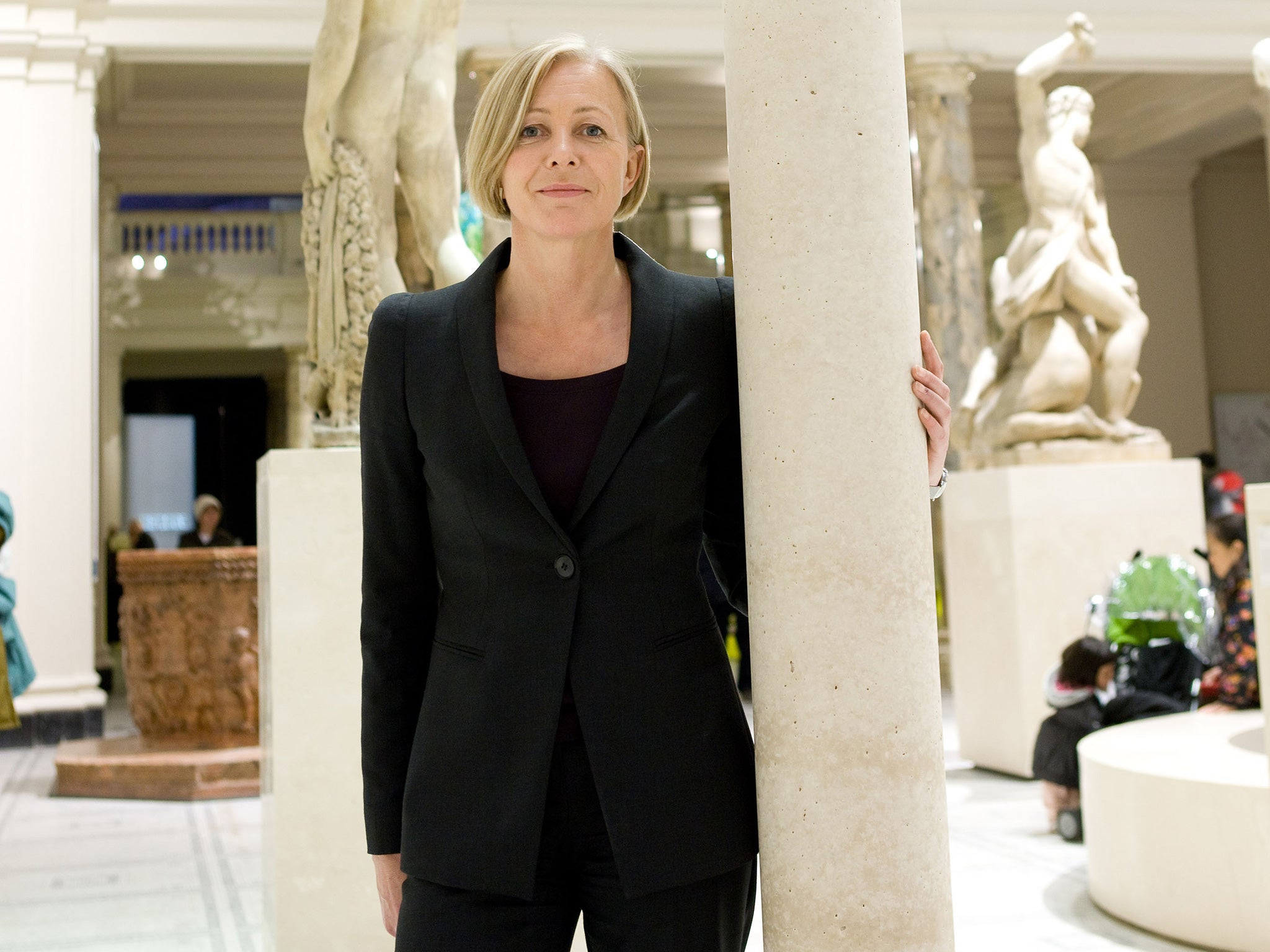Moira Gemmill: Visionary designer who transformed cultural spaces across Britain, including the V&A and the Museum of London
Gemmill was riding her bicycle to work from her home in Kennington, south London when she died following a collision with a tipper truck

Your support helps us to tell the story
From reproductive rights to climate change to Big Tech, The Independent is on the ground when the story is developing. Whether it's investigating the financials of Elon Musk's pro-Trump PAC or producing our latest documentary, 'The A Word', which shines a light on the American women fighting for reproductive rights, we know how important it is to parse out the facts from the messaging.
At such a critical moment in US history, we need reporters on the ground. Your donation allows us to keep sending journalists to speak to both sides of the story.
The Independent is trusted by Americans across the entire political spectrum. And unlike many other quality news outlets, we choose not to lock Americans out of our reporting and analysis with paywalls. We believe quality journalism should be available to everyone, paid for by those who can afford it.
Your support makes all the difference.Moira Gemmill was a visionary who transformed cultural spaces across Britain. Following influential design and programme roles at Aberdeen Art Gallery, the Museum of London and the V&A, she had recently begun a new phase of her life, supervising modernisation at Windsor Castle and Holyrood Palace.
She was born in 1959 and grew up in a farming family in Kintyre, Western Scotland. She studied photography and graphic design at the Glasgow School of Art and began work as an illustrator for an Aberdeen-based magazine serving the oil industry. Finding the work unsatisfying, she established Citygirl, a short-lived magazine for urban working women.
In 1980 she joined Aberdeen Art Gallery as head of programme support. "It's a very, very fine art gallery with great collections and I absolutely loved it," she recalled. "It was quite forward-thinking."
Gemmill was headhunted by the Museum of London in 1998, around the time Simon Thurley began as its new director. Thurley, now Chief Executive of English Heritage, told The Independent, "We brought Moira from Scotland to transform the look of what we were doing. The very first show she presided over, London Bodies, shook everyone's idea of what an archaeological exhibition should look like. From that point on she led the process that gradually transformed the place: winning back the clarity, simplicity and lightness of the original displays, qualities that had been lost, almost forgotten, by changes made over the previous decade."
The London Bodies show was revolutionary in looking not at London's built environment or the objects its inhabitants created, as one might usually see in a museum. Instead, the exhibition revealed the physique, health and diet of the people who had lived in the city and its earlier settlements since prehistoric times, based on some of the 6,500 skeletons in the museum's collection. Her groundbreaking design ideas were key to the exhibition's success.
Gemmill joined the V&A in 2002 as Head of Design, leading the museum's "FuturePlan" project, a £150m programme to update the exhibition spaces in and around the existing building. She noted that the museum's purpose had originally been pedagogic, educating the public and industry about design. "But through the 20th century it became seen more as an art museum," she explained. "FuturePlan is partly about its rehabilitation. At the V&A the building came first and the collections came later. The museum was designed to embody new materials and techniques."
Key to this redevelopment was enabling the utilisation of underused space already available, such as the John Madejski Garden, previously a storage area, now transformed into an elegant Italianate courtyard. She guided a plan to remodel the Grand Entrance and Dome, designed by Eva Jiricna, which opened in 2003. That project won a Royal Borough of Kensington & Chelsea design award.
Her most recent project at the V&A, last year, involved adding new space on Exhibition Road by creating an underground area for temporary exhibitions. This is due to be completed in 2017. She had also been engaged in work on a new outpost, the V&A Museum of Design at Dundee, likewise due to open in 2017.
Since 2000 the V&A's visitors have grown from 900,000 annually to more than three million. Much of this growth is thanks to Gemmill and the team of designers and architects working with the museum who maintained a vision and brought that vision into being.
She had been on the judging panel of Architectural Review magazine's Women in Architecture Awards since their launch in 2011. The magazine's editor, Christine Murray, who had become a friend, said of Gemmill, "She had such tremendous energy and really believed in bringing more women into architecture because there were so few."
In January she had moved from the V&A to the Royal Collection Trust as Director of Capital Programmes. Based at St James's Palace, she was involved in projects to transform the Queen's residences at Holyrood Palace and Windsor Castle. Gemmill was riding her bicycle to work from her home in Kennington, south London when she died following a collision with a tipper truck.
Martin Roth, Director of the V&A, said: "During her 13-year career at the V&A as the director of design she made an extraordinary impact in transforming the Museum's galleries and facilities with the FuturePlan programme of restoration, refurbishment and redesign. Major projects included the Medieval & Renaissance Galleries and most recently the Weston Cast Court. I cannot overstate Moira's remarkable contribution in making the V&A the global leader in museum design that it is today."
MARCUS WILLIAMSON
Moira Gemmill, designer: born Kintyre 18 September 1959; died London 9 April 2015.
Join our commenting forum
Join thought-provoking conversations, follow other Independent readers and see their replies
Comments